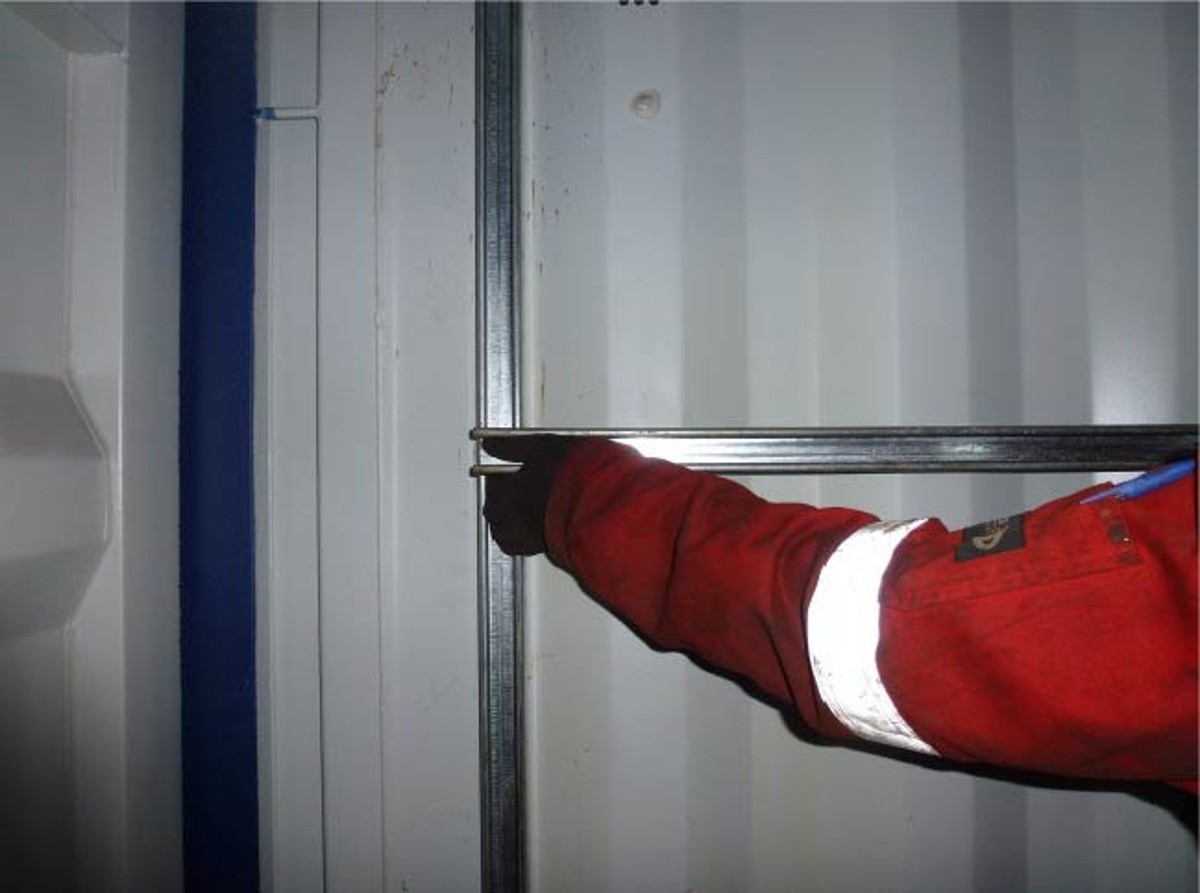Lost time injury (LTI): Broken thumb
- Safety Flash
- Published on 30 January 2013
- Generated on 30 June 2025
- IMCA SF 03/13
- 2 minute read
Jump to:
A Member has reported an incident in which an employee suffered a broken thumb.
What happened?
The incident occurred during demobilisation works onboard a barge, where two technicians were stripping out cables and framework from within an electrical power distribution unit (PDU) container. During the final phase of the work, one of the technicians was removing a final horizontal section of ‘Unistrut’.
Whilst supporting the left hand side of the Unistrut section with his left hand, he unscrewed the right hand screw. Unexpectedly, the right hand screw and Unistrut adaptor (ZEB) dislodged from its fixed position causing the right hand side of that section of Unistrut to fall to the ground.
As the technician was still supporting the left hand end with his left hand and as the Unistrut fell, his thumb was caught within the section of Unistrut, twisting it and causing a broken thumb. First aid was provided onboard, after which he was taken to hospital for further treatment.

Unistrut and demonstrating how a thumb could become trapped within it
Findings
The company’s investigation revealed that:
- Risk assessments and toolbox talks were all in place prior to the incident.
- All crew attended the pre-work briefing and toolbox talk.
- Full appropriate personal protective equipment (PPE) was being worn, including suitable gloves.
- The injured person did not feel ‘under pressure’ to get the task done too quickly.
- The incident occurred near the end of the task.
- There was insufficient appreciation of potential risks if a section of Unistrut detached unexpectedly. Had this potential been correctly identified it is unlikely that the incident would have happened; the risk assessment was not adequate.
It was noted that although the incident occurred during the removal of a section of Unistrut this could also happen during the installation of Unistrut. Actions identified are therefore as applicable to installation as to removal.
Actions
The primary action was to ensure that, henceforth, two people should be involved in the installation and/or removal of Unistrut sections, regardless of length.
The second person should provide support to the Unistrut whilst it is being secured in position or removed to prevent any unexpected movement.
IMCA Safety Flashes summarise key safety matters and incidents, allowing lessons to be more easily learnt for the benefit of the entire offshore industry.
The effectiveness of the IMCA Safety Flash system depends on the industry sharing information and so avoiding repeat incidents. Incidents are classified according to IOGP's Life Saving Rules.
All information is anonymised or sanitised, as appropriate, and warnings for graphic content included where possible.
IMCA makes every effort to ensure both the accuracy and reliability of the information shared, but is not be liable for any guidance and/or recommendation and/or statement herein contained.
The information contained in this document does not fulfil or replace any individual's or Member's legal, regulatory or other duties or obligations in respect of their operations. Individuals and Members remain solely responsible for the safe, lawful and proper conduct of their operations.
Share your safety incidents with IMCA online. Sign-up to receive Safety Flashes straight to your email.